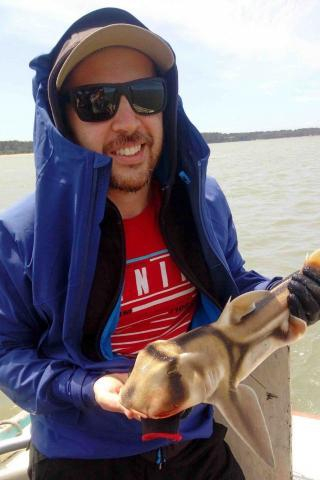18/10/2019 | With a scholarship from the Alexander von Humboldt Foundation (AvH), Dr. Juan Molina from Argentina will spend a year and a half at the Leibniz Centre for Tropical Marine Research (ZMT) to study the impact of climate change and other environmental changes on fish.
Rising sea temperatures, decreasing oxygen content and toxic waste in many marine areas are factors that can influence the metabolism of fish and thus also their growth and body size - properties which are of important for commercial catch and fisheries.
The project is also relevant for the aquaculture of fish. The planned studies on the metabolism of fish should on the one hand provide information on the energy costs and feed requirements of the animals. In aquaculture, feeding is often very random. Fish food is expensive, and too much of it can lead to fatty liver in farmed fish with small space for movement.
In open net enclosures, such as those found off Norway and many Asian coastal countries, the farmed fish are directly exposed to the fluctuations of their water environment. If you know how their metabolism and food requirements change as a result, their feeding can be done much more systematically. This would prevent feed waste, which all too often leads to eutrophication of the water and stimulates bacterial growth.
Juan Molina is affiliated to the working group Ecophysiology / Experimental Aquaculture. He will study scorpion and toad fish and measure their oxygen consumption using a special respiration chamber developed at ZMT. Oxygen consumption is a measure of the fish's energy consumption and thus its food requirements.
Juan Molina is a fish ecologist and holds a doctorate from the Del Sur National University in Bahia Blanca, Argentina, where he works as an assistant professor. He is an assistant researcher at the Argentinean Institute of Oceanography. As a postdoctoral fellow, he conducted research at universities in Canada, Japan and Australia. Molina received a Georg Forster fellowship from the AvH, which enables young scientists with above-average qualifications from developing and emerging countries to undertake long-term research stays in Germany. The programme is financed by the German Federal Ministry for Economic Cooperation and Development (BMZ).





